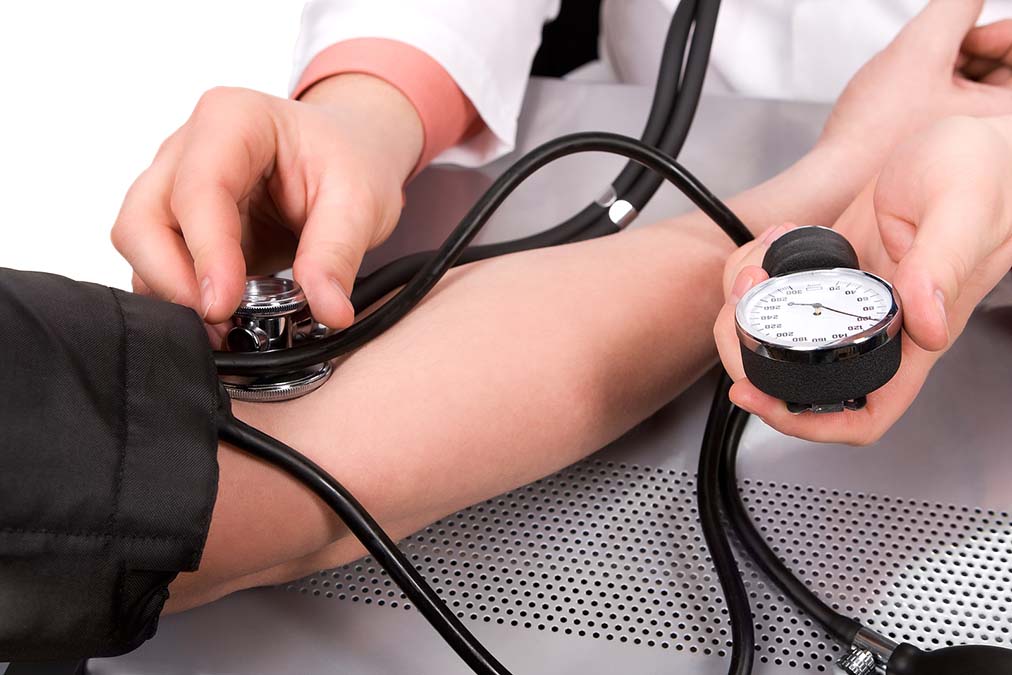 Regularly checking your blood pressure may not be sufficient for identifying and preventing high blood pressure, according to research from Jichi Medical University in Japan.
Regularly checking your blood pressure may not be sufficient for identifying and preventing high blood pressure, according to research from Jichi Medical University in Japan.
Strangely enough, taking your blood pressure at the wrong time of day could completely skew the readings, ultimately leading to stroke and heart attack.
Scientists have said for years that the best time to check blood pressure is in the morning, because resting readings are the most accurate.
But that’s not the only reason, according to the scientists from Jichi Medical University in Japan.
In their study, they found that, for participants whose blood pressure tended to be higher in the morning than at other times of day, failing to identify the high blood pressure problem proved to be deadly.
These people were at an exponentially higher risk of stroke and heart attack than their counterparts whose blood pressure was high all day.
There wasn’t a difference in the risk factor for those whose blood pressure was higher in the evenings. The morning spikes were the standout factor.
So checking your blood pressure at the same time every day is best, especially if you can do it morning, noon, and before bed. However, morning readings are the most important.
But you probably already know that you have high blood pressure and you’re wondering what you should do about it. By far the best method to lower blood pressure is practicing these 3 easy blood pressure exercises that are guaranteed to bring yours below 120/80—starting today…
And if your cholesterol is too high, learn how cutting out this ONE specific ingredient normalizes cholesterol in days…

 Overcoming IBD
Overcoming IBD Multiple Sclerosis
Multiple Sclerosis Banishing Bronchitis
Banishing Bronchitis Gum Disease Gone
Gum Disease Gone Overcoming Onychomycosis
Overcoming Onychomycosis Neuropathy No More
Neuropathy No More The Prostate Protocol
The Prostate Protocol Brain Booster
Brain Booster
 Ironbound
Ironbound
 Solution for Shingles
Solution for Shingles
 The Bone Density Solution
The Bone Density Solution
 The Ultimate Healing Protocol
The Ultimate Healing Protocol
 The Parkinson's Protocol
The Parkinson's Protocol
 The Chronic Kidney Disease Solution
The Chronic Kidney Disease Solution
 Overthrowing Anxiety
Overthrowing Anxiety The Fatty Liver Solution
The Fatty Liver Solution The Hypothyroidism Solution
The Hypothyroidism Solution
 The End of Gout
The End of Gout The Blood Pressure Program
The Blood Pressure Program
 The Oxigized Cholesterol Strategy
The Oxigized Cholesterol Strategy
 Stop Snoring And Sleep Apnea Program
Stop Snoring And Sleep Apnea Program
 The Arthritis Strategy
The Arthritis Strategy The Vertigo & Dizziness Program
The Vertigo & Dizziness Program The 3-Step Diabetes Strategy
The 3-Step Diabetes Strategy Hemorrhoids Healing Protocol
Hemorrhoids Healing Protocol The Erectile Dysfunction Master
The Erectile Dysfunction Master Weight Loss Breeze
Weight Loss Breeze The IBS Program
The IBS Program The Insomnia Program
The Insomnia Program The Migraine and Headache Program
The Migraine and Headache Program The Neck Pain Solution
The Neck Pain Solution The Menopause Solution
The Menopause Solution The Ejaculation Master
The Ejaculation Master The TMJ Solution
The TMJ Solution The Acid Reflux Solution
The Acid Reflux Solution The Fibromyalgia Solution
The Fibromyalgia Solution The Psoriasis Strategy
The Psoriasis Strategy